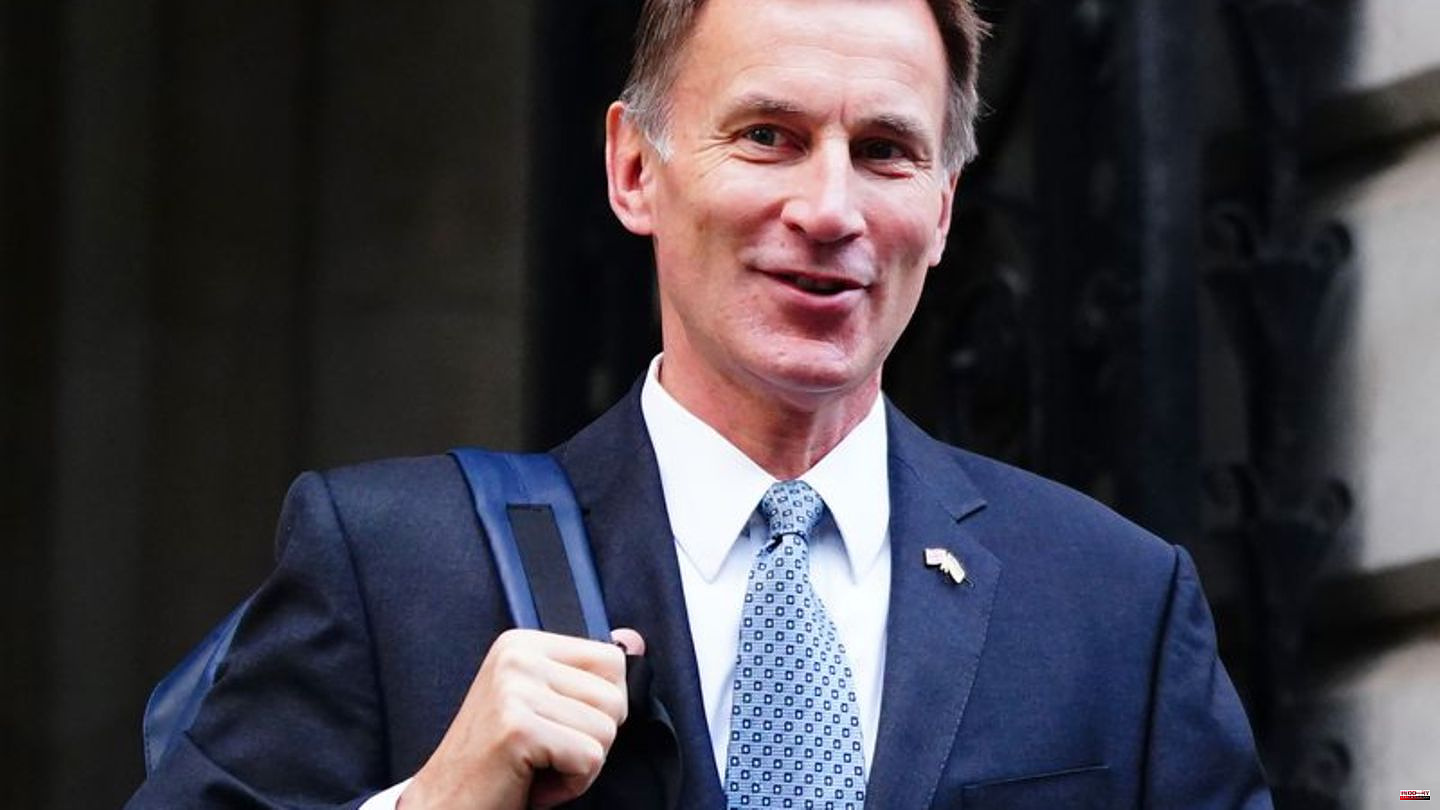It is simply called "Autumn Statement". But what the British Treasury Secretary Jeremy Hunt will present on Thursday could be a winter bomb for government and consumers. For Hunt, it's about nothing less than saving the local economy. In any case, fears of a long-lasting recession, rampant inflation and high energy costs are increasing the pressure. Because of the disastrous financial policy of short-term Prime Minister Liz Truss, Hunt and Prime Minister Rishi Sunak now have to calm the markets. Consumers are presented with the bill around noon.
"My absolute priority is to ensure that we deal with the economic situation we are facing at home," Prime Minister Sunak announced. Above all, he wants to get inflation under control. In October, consumer prices rose 11.1 percent, significantly higher than expected. The news sent shock waves across the kingdom on Tuesday.
It is already certain that almost all Britons will have to accept significant losses in real wages. The government has repeatedly stressed that wage increases in line with inflation would only push consumer prices even higher. But with the cost of living rising, Sunak and Hunt must carefully consider where they are taking or withholding something more from their citizens.
£40 billion missing
The Chancellor of the Exchequer has already indicated that he will raise taxes, slightly more for the wealthy than for the others. In addition, public spending will probably be cut significantly. The ailing health service NHS receives new billions, but not as many as would be necessary. The opposition says Hunt should expand the excess profits tax rather than asking low earners to pay. One thing is clear: Hunt is looking for a lot of money. The budget gap is around 40 billion pounds (45.9 billion euros), but a few billion more are probably needed to have a buffer in the face of inflation.
The fall statement was originally scheduled for November 23, but was then brought forward to October 31. The financial plans of Sunak's predecessor, Truss, had triggered severe turbulence on the financial markets. Truss wanted to slash taxes radically and fund that expected cost of tens of billions of pounds only with new debt. Hunt quickly cleaned that up. But business confidence is still low. Sunak admitted that it is primarily about meeting the expectations of the financial markets.
Criticism of "vanity project"
"Once we have the strong foundation that the Chancellor of the Exchequer will provide tomorrow, I am confident that we can move forward as a country and look forward to a brighter future and build on that foundation to create jobs, opportunity and prosperity across the country create," announced Sunak. The pressure on Hunt is correspondingly high. In the meantime, however, there is also headwind in his Conservative Party. MP and former Secretary of State Esther McVey has called for Hunt to scrap the mega-project costing tens of billions to build a high-speed rail link to northern England. As long as this "vanity project" is not canceled, she will not support any tax increases.
The approval of his group is the crucial question for Hunt, especially since many conservatives are staunch opponents of higher taxes and the tax burden is already higher than at any time in 70 years. "Sunak's political honeymoon ends tomorrow," Telegraph reporter Christopher Hope said on Tuesday.
Hunt has already lost in the opposition. The Tories wanted to convince the public that the economic problems were beyond their control, said Labor Party Deputy Leader Angela Rayner. In doing so, they let working people pay the price for their policies. "They chose to protect corporate profits, not household incomes," Rayner said. She sees black for the future. If there were a "World Cup of Growth", Great Britain would not qualify.







